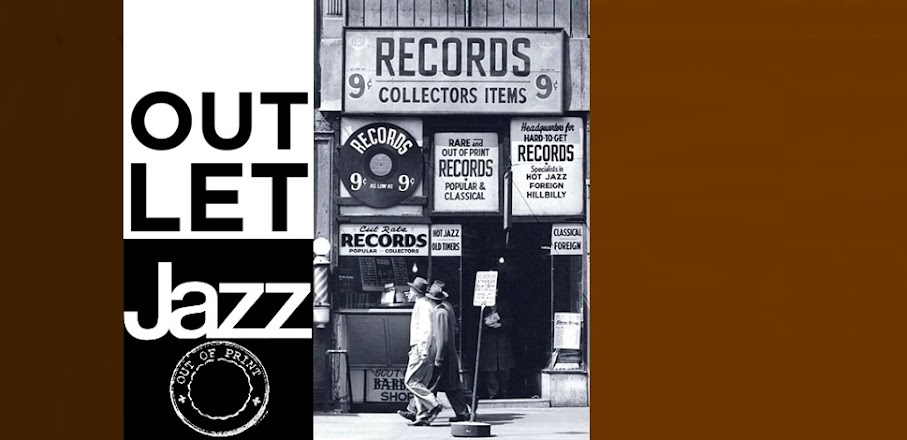This fine album presents a side of Claude Bolling that may come as a surprise to those who know the gifted French musician only as the composer-performer of a highly successful mixture of jazz and classical music that has brought him international fame and fortune.
Bolling was an early starter. Born in Cannes in 1930, he began to perform professionally as a jazz pianist at the age of 15. Within a year, he was leading his own band, and in 1948, he made his first recordings as a leader at its helm. Even at this early stage, Bolling showed considerable originality in his approach to the jazz tradition. Those were the glory days of revivalist jazz, when young players, especially in England and France, were doing their level best to copy the sounds of King Oliver, Jelly Roll Morton and the Armstrong Hot Five.
But Bolling’s seven-piece band, while bearing a superficial resemblance to the ordinary "trad" groups, didn’t copy old records, but brought a fresh conception to vintage material.
Already, the young pianist-arranger had been profoundly touched by the conception of his favorite musician, Duke Ellington, while his approach to the piano was strikingly influenced by Earl Hines. (A bit later on, Art Tatum became Bolling’s other keyboard hero).
In the decade following World War Il, Paris became something of a Mecca for American jazzmen, and young Claude had the benefit of working and recording with such major figures as Rex Stewart, Roy Eldridge, Buck Clayton, Albert Nicholas, Mezz Mezzrow and Lionel Hampton, among others. And he was honing his arranging and composing skills.
By the mid-50s, when the music on this record was made, Bolling had become a first-class big band writer, though he hadn’t by any means abandoned the small-group approach he’d grown up with. But he had put the New Orleans revival far behind him, and had obviously been listening to, and playing, bebop and cool jazz. His basic inspiration, Ellington, was still to the fore, however, and it is in the Dukish pieces on this album that the 26-year-old Bolling, in my opinion, is at his very best.
*Dan Morgenstern*
Claude Bolling has had a long and multi-faceted career in his native France. It is as a leader of a series of big bands that Bolling is most significant. This LP features Bolling's arrangements in three different settings: with an octet also including trombonist Benny Vasseur and tenor saxophonist Guy Lafitte; in a quintet with trumpeter Christian Bellest and the reeds of Pierre Gosssez (Bernard Verstraete guests on one song on accordion); and, surprisingly, in a septet with Martial Solal taking over for Bolling on piano. The music is often influenced by Duke Ellington, although none of the songs (which include five Bolling originals) are Duke's. Mixing together swing and bop, this is one of Claude Bolling's best jazz sessions. *Scott Yanow*
Side 1
1 - Show Me A Rose
(Thomas Hilliard)
2 - Lorraine Blues
(Claude Bolling)
3 - The Most
(Billy Mure)
4 - In The Sun
(Gray Rains)
5 - Trinette
(Toots Thielemans)
6 - When I Was Young
(Claude Bolling)
Side 2
7 - Nuances
(Claude Bolling)
8 - Gee Lee
(Ted Sommer)
9 - Playera
(Granados, Verstraete)
10 - The Jockey
(Steve Kirk)
11 - In Extremis
(Bolling, Bellest)
12 - French Beat
(Claude Bolling)
#2, #4, #7, #12:
Fernand Verstraete, Fred Gerard (trumpets); Benny Vasseur, Bernard Zacharias, Claude Cousset (trombones); Pierre Gossez (alto sax, tenor sax); Guy Lafitte (tenor sax); Claude Bolling (piano); Alphonse Masselier (bass); Arthur Motta (drums).
#3, #5, #10:
Claude Bolling (conductor, arranger); Roger Guerin (trumpet); Claude Fohrenbach, Pierre Gossez (tenor saxes); Martial Solal (piano); Victor Apicella (guitar); Pierre Michelot (bass); Christian Garros (drums).
Recorded in Paris May 28, 1956.
#1:
Christian Bellest (trumpet), Pierre Gossez (tenor sax), Alphonse Masselier (bass), Arthur Motta (drums), Claude Bolling (arranger).
#6:
Pierre Gossez (clarinet), Claude Bolling (piano), Alphonse Masselier (bass), Arthur Motta (drums),
#8:
Christian Bellest (trumpet), Pierre Gossez (baritone sax), Alphonse Masselier (bass), Arthur Motta (drums), Claude Bolling (arranger).
#9:
Fernand Verstraete (accordion), Alphonse Masselier (bass), Arthur Motta (drums), Claude Bolling (arranger).
#11:
Christian Bellest (trumpet), Claude Bolling (piano), Alphonse Masselier (bass), Arthur Motta (drums),
Recorded in Paris May 29, 1956.


Hi, blbs! Thanks a lot!
ReplyDeleteThanks for this post, kind **blbs**
ReplyDeleteThank you for this album.
ReplyDeleteolá
ReplyDeleteanother great post
thanks a million
joao
Muchas gracias.
ReplyDeleteMuchas gracias
ReplyDeleteMuchas gracias!!
ReplyDeleteMuchas gracias blbs. Conocia al Bolling de la etapa en que trabaja con interpretes de musiva clasica. Esto ha sido para mi una grata sorpresa. Me parece un disco estupendo.
ReplyDelete